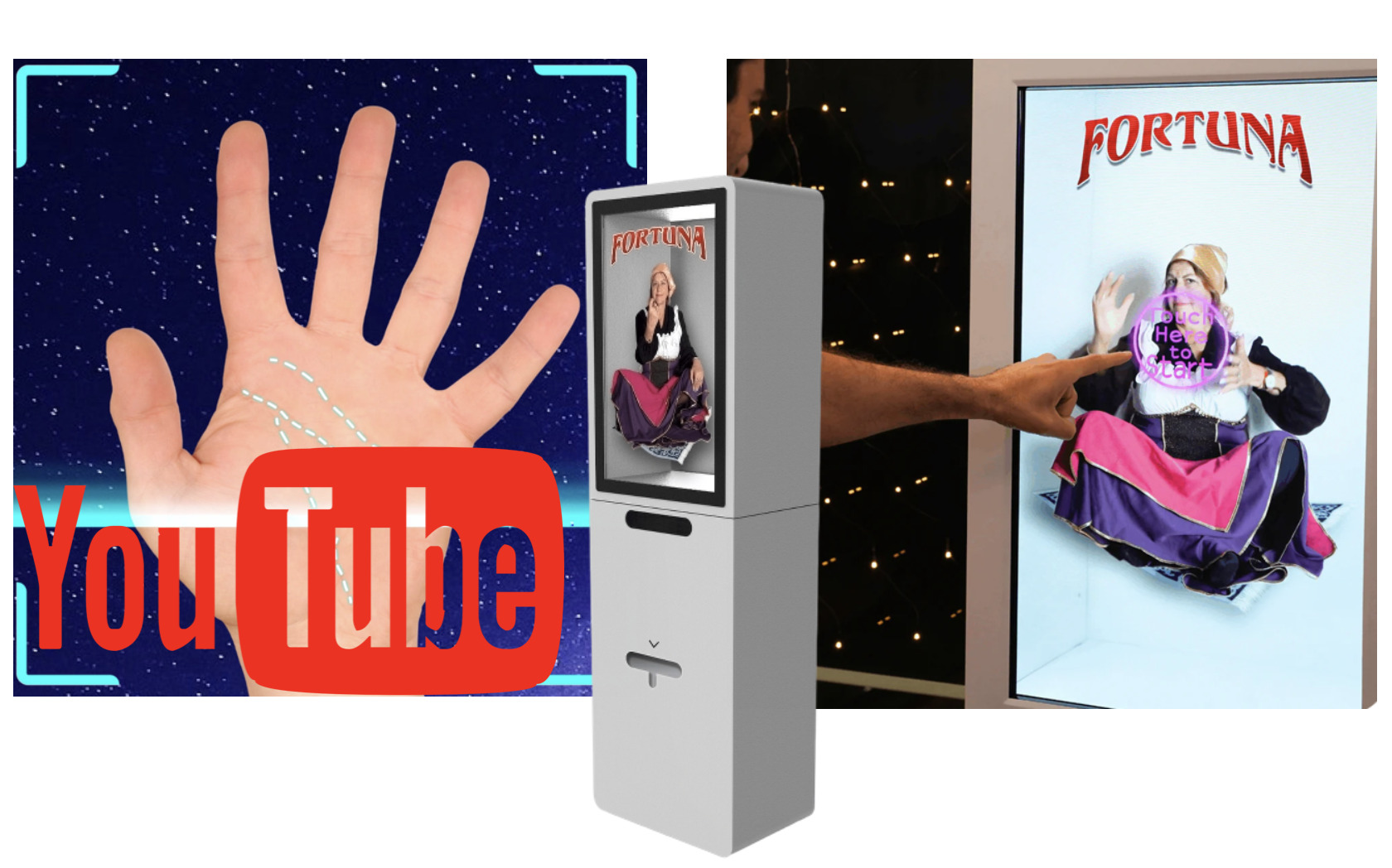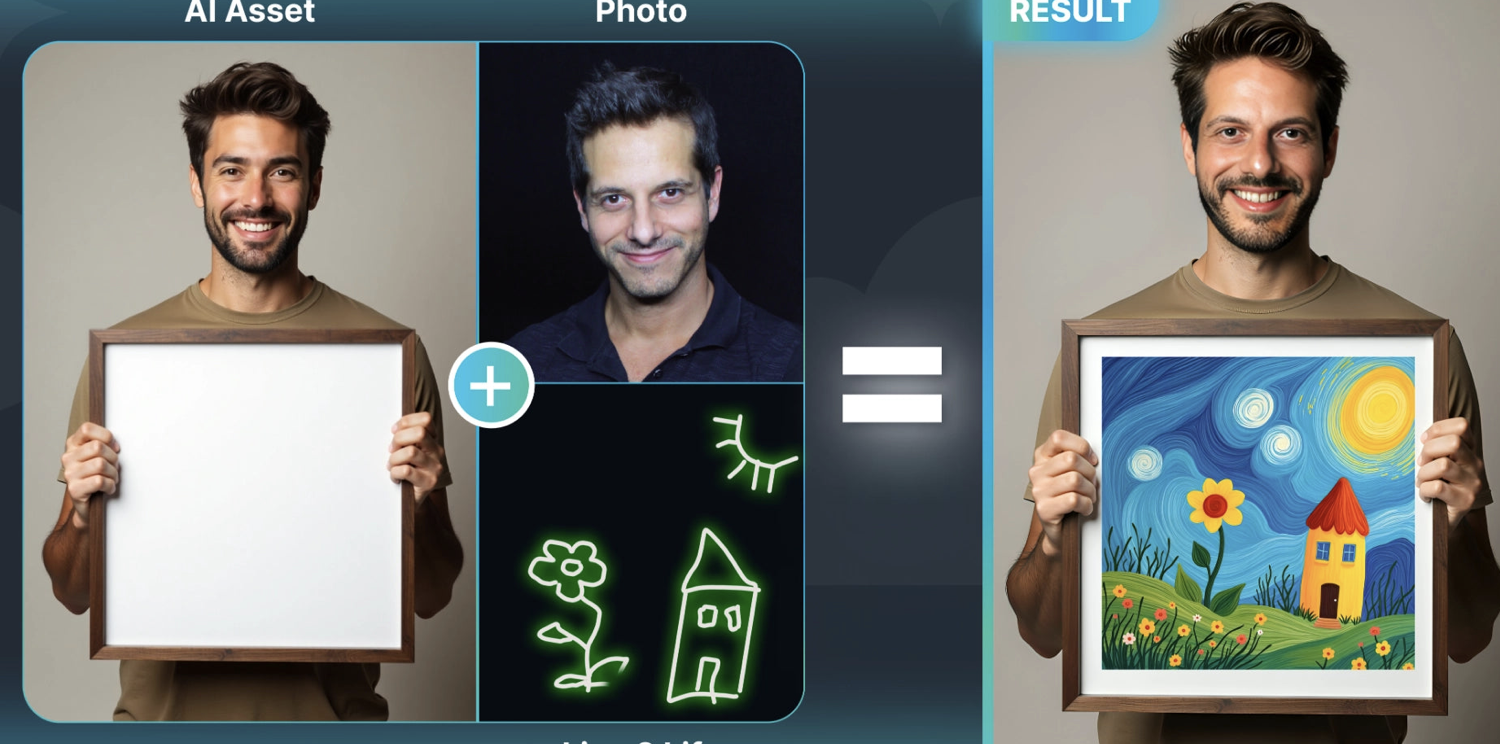AI Entertainment Hire : Where Technology Meets Experience


Our AI Sketch Robot is the ultimate fusion of technology and creativity, offering an unforgettable entertainment experience for events of all kinds. Using advanced facial recognition and machine learning, the Sketch Robot creates fast, personalised digital portraits that delight guests and generate instant engagement. Whether it’s a brand activation, corporate event, exhibition, or private celebration, this interactive experience draws crowds and leaves a lasting impression. Ai Entertainment Hire
Fortune AI: Predict the Unexpected

Fortune AI is an interactive, AI-powered experience that adds a playful, intelligent twist to any event. Combining personality insight with creative prediction, Fortune AI generates fun, personalised fortunes for guests in real-time — delivered through sleek touchscreens or interactive kiosks. It’s a blend of entertainment, curiosity, and conversation-starter, designed to draw attention and keep guests engaged.
Perfect for corporate events, exhibitions, brand activations, and private functions, Fortune AI offers a unique way to connect with audiences. Guests answer a few light-hearted questions or interact with a digital prompt, and the AI responds with a tailored fortune — often humorous, always memorable. Each fortune can be fully branded and shared digitally, making it ideal for social media buzz and extended brand visibility. AI Entertainment Hire.
Line to Life AI: Turn Doodles into Digital Magic

Line to Life AI is a creative and interactive experience that transforms simple sketches or outlines into stunning, AI-generated artworks — live, in seconds. Guests draw a quick line, shape, or doodle on a touchscreen, and the AI instantly brings it to life as a beautifully rendered image. It’s fun, immersive, and perfect for sparking imagination across all ages.
Ideal for experiential marketing, brand activations, exhibitions, and educational events, Line to Life AI encourages hands-on participation and creativity. Each piece of AI art can be branded and shared instantly, making it perfect for social media engagement and extending the reach of your event beyond the venue walls.
Title: The Transformative Role of Artificial Intelligence in the Media and Entertainment Industry
The media and entertainment industry is undergoing a monumental shift, driven by the integration of artificial intelligence (AI) into nearly every facet of its operations. From content creation and audience analysis to marketing campaigns and real-time feedback, AI-powered tools are revolutionizing the way entertainment companies operate. This article delves deep into the evolving media and entertainment sector, highlighting how AI tools are shaping content generation, distribution, audience engagement, and beyond.
AI in the Media and Entertainment Sector
Artificial intelligence has become a vital force in the media industry, enabling organizations to process vast amounts of data, automate tasks, and generate insights that were previously impossible. Media and entertainment companies are using advanced algorithms and machine learning models to identify trends, analyze user behavior, and provide personalized recommendations across various platforms.
AI continues to influence the entertainment sector by enhancing creative processes, optimizing production workflows, and introducing new forms of storytelling. These technological innovations are not only improving efficiency but are also expanding the boundaries of what’s possible in terms of creativity and user engagement.
Enhancing Creative Processes with AI
One of the most significant contributions of AI in entertainment is its ability to augment creative professionals. AI-driven tools are now being used to assist with video editing, music generation, scriptwriting, character animation, and even lighting and compositing in films. For instance, AI-generated works are being produced using generative AI tools that analyze existing compositions and styles to create new content.
Wonder Dynamics and similar platforms are examples of how AI is being used to automate complex visual effects (VFX), allowing creators to focus more on storytelling and artistic expression. These AI systems can generate hyper-realistic visual effects and characters, streamlining production processes and reducing costs.
AI-Powered Content Creation and Production
AI’s role in content production is expanding rapidly. Generative AI tools, such as large language models, are enabling the automation of tasks like dialogue generation, ad copy creation, and script development. These tools use historical data and metadata to generate content that matches audience preferences and trends.
In the gaming industry, AI is used to design non-player characters (NPCs) that adapt to user behavior, creating immersive and personalized gaming experiences. AI developers are also exploring the integration of virtual influencers—AI-generated personalities that engage with audiences in real time, further blurring the line between human and machine.
Marketing Strategies and Audience Analysis
Marketing strategies in the media and entertainment industry have evolved significantly due to the capabilities of AI. Advanced analytics and sentiment analysis allow companies to understand audience reactions, tailor content, and refine advertising campaigns. AI algorithms can parse through billions of data points to discover valuable insights about user preferences, demographics, and viewing habits.
Entertainment companies are increasingly relying on AI to conduct audience analysis and develop targeted marketing campaigns that resonate with specific segments. This ability to connect the right content with the right audience at the right time is transforming how media is consumed and monetized.
Personalized Recommendations and Streaming Services
Streaming platforms like Netflix, Amazon, and Spotify have set the benchmark for AI-driven personalized recommendations. These services use sophisticated recommendation algorithms that analyze viewing habits, likes, searches, and even pauses to suggest content tailored to individual tastes.
By leveraging data analysis and neural networks, AI enables platforms to offer a unique and engaging experience for each user. This personalized approach not only enhances audience engagement but also increases user retention and loyalty.
Ethical Implications and Human Creativity
While AI presents numerous advantages, it also raises important ethical questions, especially in relation to human creativity, copyright, and the use of AI-generated content. The Writers Guild and other industry bodies have raised concerns about AI replacing human writers and performers.
There is an ongoing conversation about the responsible use of AI in entertainment, particularly in areas such as deepfake technology, content moderation, and misinformation. Ensuring that AI-generated content adheres to ethical standards and respects the rights of creators is essential as the industry continues to evolve.
AI and the Future of Entertainment
The future of the media and entertainment sector is being shaped by a continuous infusion of AI innovation. Companies are using AI to explore new forms of entertainment, from AI-generated music and video to interactive narratives and real-time audience feedback mechanisms.
AI brings endless possibilities for enhancing creativity, increasing efficiency, and improving the overall entertainment experience. As AI tools become more sophisticated, they will play an increasingly integral role in content production, audience engagement, and media management.
Real-World Applications and Case Studies
Numerous real-world examples illustrate the impact of AI on the entertainment industry:
-
Netflix uses AI for content recommendations, audience analysis, and even script development.
-
YouTube employs AI to moderate content, recommend videos, and analyze user engagement.
-
Meta is investing in AI to develop immersive virtual experiences and personalized advertising.
-
Spotify uses AI to generate music, analyze listening behavior, and create customized playlists.
These examples highlight the widespread adoption of AI across various aspects of media and entertainment.
Challenges and Considerations
Despite its benefits, integrating AI into the media industry comes with challenges. Issues such as data privacy, consent, copyright infringement, and the energy consumption of AI models must be addressed. There’s also a need for regulatory frameworks to ensure the responsible use of AI in creative fields.
Moreover, while AI can assist in content generation, it cannot fully replicate the emotional depth, cultural nuance, and originality that human creators bring to the table. Maintaining a balance between automation and authentic human expression is crucial.
The Role of AI Developers and Stakeholders
AI developers, content creators, and media companies must collaborate to ensure that AI is used in ways that augment rather than replace human creativity. Transparency, accountability, and inclusivity should guide the development and deployment of AI systems.
Stakeholders across the industry must also engage in ongoing dialogue about the implications of AI, focusing on trust, control, and ethical considerations. This collaboration is essential for navigating uncharted territories and ensuring that AI serves the interests of both creators and audiences.
Conclusion
Artificial intelligence is revolutionizing the media and entertainment industry, offering tools that enhance creativity, streamline production, and transform audience engagement. From AI-generated music to automated video editing, the entertainment sector is embracing AI to push the boundaries of storytelling and content creation.
As the industry continues to evolve, the integration of AI must be guided by ethical standards, respect for human creativity, and a commitment to inclusivity. By doing so, media and entertainment companies can harness the full potential of AI to create compelling, relevant, and responsible content for diverse global audiences.
The future of entertainment is not just about technology—it’s about the synergy between human imagination and artificial intelligence. Together, they can shape an industry that is more innovative, engaging, and inclusive than ever before.